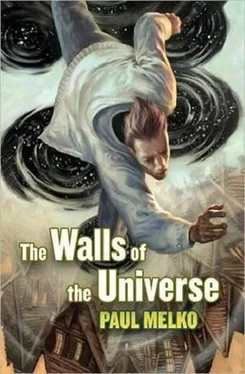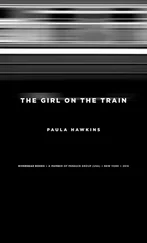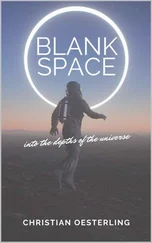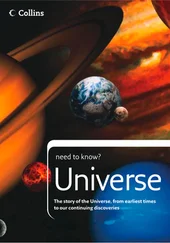
Paul Melko
The Walls of the Universe
© 2009
Many thanks go to the readers of Asimov’s Science Fiction, who voted “The Walls of the Universe” the best novella of 2006.
The screen door slammed behind John Rayburn, rattling in its frame. He and his dad had been meaning to fix the hinges and paint it before winter, but just then John wanted to rip it off and fling it into the fields.
“Johnny?” his mother called after him, but by then he was in the dark shadow of the barn. He slipped around the far end and any more of his mother’s calls were lost among the sliding of cricket legs. His breath blew from his mouth in clouds.
John came to the edge of the pumpkin patch, stood for a moment, then plunged into it. Through the pumpkin patch was east, toward Case Institute of Technology, where he hoped to start as a freshman the next year. Not that it was likely. There was always the University of Toledo, his father had said. One or two years of work could pay for a year of tuition there.
John kicked a half-rotten pumpkin. Seeds and wispy strings of pumpkin guts spiraled through the air. The smell of dark earth and rotten pumpkin reminded him it was a week before Halloween and they hadn’t had time to harvest the pumpkins: a waste and a thousand dollars lost to earthworms. He ignored how many credits that money would have bought.
The pumpkin field ended at the tree line, the eastern edge of the farm. The trees-old maples and elms-abutted Gurney Road, beyond which was the abandoned quarry. He stood in the trees, just breathing, letting the anger seep away.
It wasn’t his parents’ fault. If anyone was to blame, it was he. He hadn’t had to beat the crap out of Ted Carson. He hadn’t had to tell Ted Carson’s mom off. That had entirely been him. Though the look on Mrs. Carson’s face had almost been worth it when he told her her son was an asshole. What a mess.
He spun at the sound of a stick cracking.
For a moment he thought that Ted Carson had chased him out of the farmhouse, that he and his mother were there in the woods. But the figure who stood there was just a boy, holding a broken branch in his hand.
“Johnny?” the boy said. The branch flagged in his grip, touching the ground.
John peered into the dark. He wasn’t a boy; he was a teenager. John stepped closer. The teen was dressed in jeans and a plaid shirt. Over the shirt he wore a sleeveless red coat that looked oddly out-of-date. He had sandy blond hair and brownish eyes.
John’s eyes lingered on the stranger’s face. No, not a stranger. The teen had his face.
“Hey, Johnny. It’s me, Johnny.”
The figure in the woods was him.
“Who… who are you?” John asked. How could this be?
The stranger smiled. His smile. “I’m you, John.”
“What?”
“Who do I look like?” the stranger said. He opened his arms, palms up, as if to share an intimate comment.
John’s head spun for a moment. “You look like…” Me, he almost said. A brother. A cousin. A hallucination. A trick.
“I look just like you, John. Because I am you.” John took a step back. The stranger continued, “I know what you’re thinking. Some trick. Someone is playing a trick on the farm boy. No. Let’s get past that. Next you’re going to think that we’re twins, and that one of us was put up for adoption. Nope. It’s much more interesting than that.”
The thought of twins had crossed his mind, but he didn’t like the stranger’s manner, his presumption. “Explain it, then.”
“Listen, I’m really hungry. I could use some food and a place to sit down. I saw Dad go into the house. Maybe we can sit in the barn and I can explain everything.”
There was something desperate in his words. He must want something from John. There had to be some twist, some gimmick. John just couldn’t see it yet. And that bothered him.
“I don’t think so,” he said.
“Fine. I’ll turn around and walk away,” the stranger said. “Then you’ll never get to hear the story.”
John almost let him go. He glanced left and right. No one was in the woods, lurking and laughing. If this were a joke, he couldn’t see the punch line. If this were a scam, he couldn’t see why he was the mark. He couldn’t see the logic, and that ate at him. What harm was there in hearing the story?
“Let’s go to the barn,” he said finally.
The stranger’s smile was genuine. “Great!”
John headed back toward the barn, the stranger at his side. John eased away from him. As they walked through the pumpkin patch, John noted that their strides matched, that they were the same height. He pulled open the back door of the barn, and the young man entered ahead of him, tapping the light switch by the door.
“A little warmer,” he said. He rubbed his hands together and turned to John.
The light hit his face squarely, and John was startled to see the uncanny match between them. In the dark, it had been easy to think their looks were close but not exact. The sandy hair was styled differently and was longer. The clothes were odd; John had never worn a coat like that. The young man was just a bit thinner as well. He wore a blue backpack, so fully stuffed that the zipper wouldn’t close all the way. There was a cut above his eye. A bit of brown blood was crusted over his left brow, clotted but recent.
He could have passed as John’s twin.
“So, who are you?”
“What about a bite of something to eat?”
John went to the horse stall and pulled an apple from a bag. He tossed it to the young man. He caught it and smiled at John.
“Tell the story and I might get some dinner from the house.”
“Did Dad teach you to be so mean to strangers? I bet if he found me in the woods, he’d invite me in to dinner.”
“Tell,” John said.
“Fine.” The young man flung himself on a hay bale and munched the apple. “It’s simple, really. I’m you. Or rather I’m you genetically, but I grew up on this same farm in another universe. And now I’ve come to visit myself.”
“Bullshit. Who put you up to this?”
“Okay, okay. I didn’t believe me either.” A frown passed over his face. “But I can prove it. Hold on a second.” He wiped his mouth with the back of his hand. “Here we go: That horse is named Stan or Dan. You bought him from the McGregors on Butte Road when you were ten. He’s stubborn and willful and he hates being saddled. But he’ll canter like a show horse if he knows you have an apple in your pocket.” The young man turned to the stalls on his left. “That pig is called Rosey. That cow is Wilma. The chickens are called Ladies A through F. How am I doing so far?” He smiled an arrogant smile.
“You stole some of your uncle’s cigarettes when you were twelve and smoked them all. You killed a big bullfrog with your BB gun when you were eight. You were so sickened by it you threw up and haven’t used a gun since. Your first kiss was with Amy Walder when you were fourteen. She wanted to show you her underwear too, but you ran home to Mommy. I don’t blame you. She’s got cooties everywhere I go.
“Everyone calls you Johnny, but you prefer John. You have a stash of Playboys in the barn loft. And you burned a hole in the rug in your room once. No one knows because you rearranged your room so that the nightstand is on top of it.” He spread his arms like a gymnast who’d just stuck a landing.
Читать дальше













